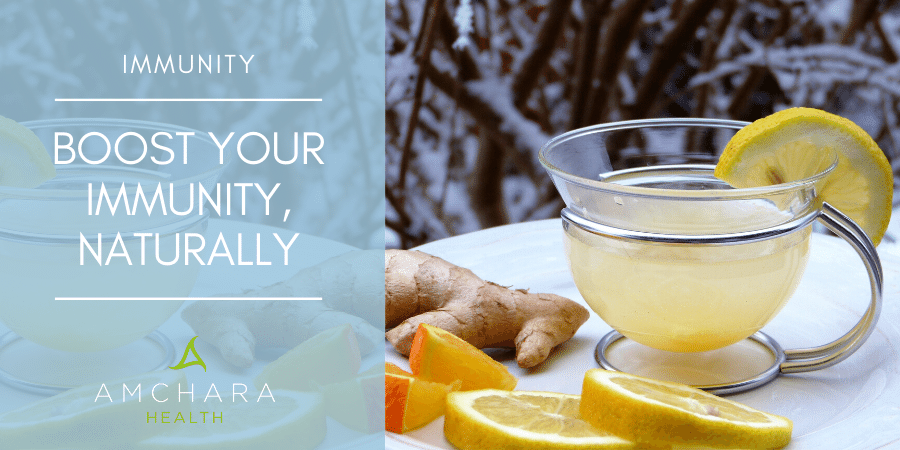Keeping your immune system in tip top shape is vital for staying well all year round as well as during the winter.
With colder weather comes an increase in circulating viruses like colds, flu and stomach bugs and staying well can be challenging.
In the modern internet world there is an overwhelming amount of information and it can be hard for you to find health advice that you can trust, particularly as the main media channels are typically dominated with a single, orthodox narrative.
Our mission is to provide you with both insightful information and evidence-based content to provide you with actionable knowledge and tips you can trust, to help you on your journey to optimal health.
Here are 7 proven ways we’ve researched to help you naturally support your immunity throughout the year.
#1.
Increase vitamin C and zinc rich foods – these nutrients have long been known to play a large role in immune functioning and have a greater effect together than by themselves (1).
If you do come down with a cold, additional vitamin C may help you recover more quickly.
Many fruits and vegetables are rich in vitamin C and juices, soups and smoothies can be a great way to increase your intake.
Zinc is found in pumpkin seeds, shellfish, beef, lamb, cashew nuts, lentils, beans and mushrooms.
#2.
Top up your vitamin D levels – research shows vitamin D plays a role in bone health and also has potent immune regulatory actions (2).
The best source of vitamin D is from skin exposure to sunlight, but during the winter sun exposure and therefore vitamin D levels fall.
According to the NHS, from October to early March sunlight in the UK doesn’t contain enough UVB radiation for our skin to make vitamin D so we need to obtain it from food or supplements.
Cheese, egg yolks and oily fish (such as salmon, mackerel and tuna) provide vitamin D and you can also eat foods that have been fortified with vitamin D (such as some dairy products, orange juice, soy milk and cereals), but during the winter a supplement may be worth considering.
#3.
Support your good gut bacteria – the complex eco-system that reside in the gut, collectively called your microbiome, have a strong influence on immune functioning by communicating with the immune system to ensure it responds effectively (3). In fact, over 70% of the immune system is in your gut.
Gut bacteria feed on certain fibre provided in the diet – these prebiotics can be found in foods such as oats, Jerusalem artichokes, onions, leeks, garlic, bananas, chicory and asparagus.
Probiotic foods containing live bacteria are also essential to support gut health. Good sources include live yoghurt, kefir, sauerkraut, kombucha and tempeh. For extra support, probiotics are available in capsule, liquid or powder form.
#4.
Eat more mushrooms – particularly oyster, reishi and cordyceps mushrooms, all rich in a compound called beta glucans (1,3/1,6).
This has been shown to trigger a specific type of immune cell that can recognise and kill foreign invaders (4), such as a virus.
#5.
Invest in echinacea – this traditional herb has long been known to have immune supportive properties, and not only shows promise for preventing colds but can be useful if you do come down with one. It has anti-inflammatory and anti-microbial properties (5) and is considered beneficial for boosting overall health.
#6.
Reduce stress levels – chronic stress, from physical, psychological or emotional triggers, is known to suppress immune functioning (6).
Try yoga, meditation, visualisation, breathing techniques, arts and crafts or gentle walks to rebalance your stress hormones.
#7.
Sleep more – lack of sleep, or disrupted sleep, negatively affects the immune system and can leave you more susceptible to common viruses like the cold virus (7).
Avoid blue light emitting devices (TVs, smartphones, laptops, eBook readers) for at least 90 minutes prior to bed, and aim to go to bed at the same time every night and rise at the same time every day.
If you experience issues with sleeping, magnesium may be of use for helping you wind down.
Do you have any other tips to help boost your immunity during winter?
We’d love to hear from you.
READ NEXT:




